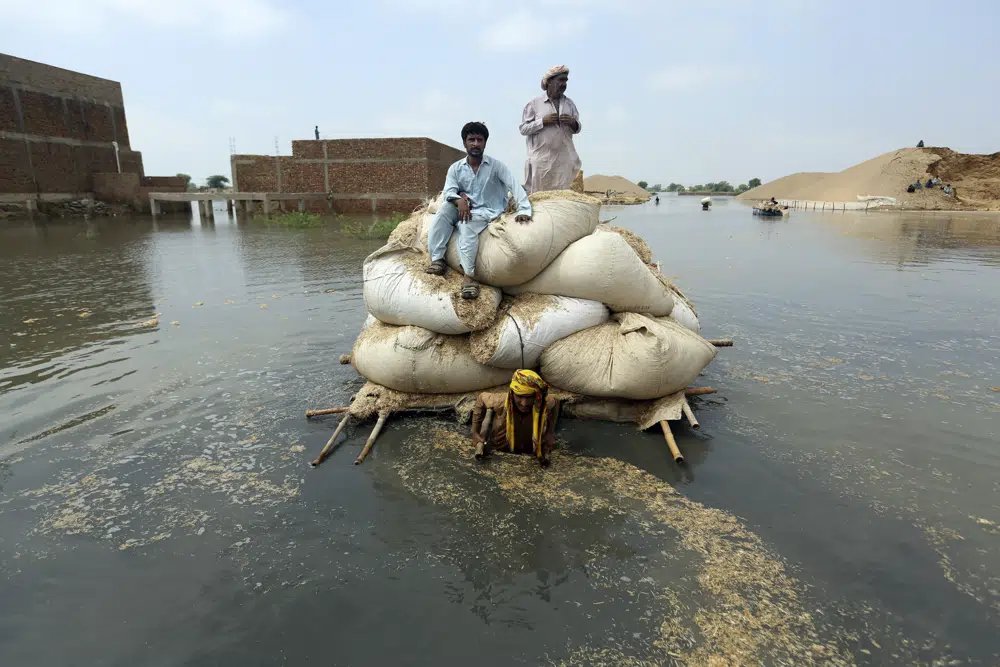The floods affected 33 million people and more than 1730 lost their lives.
Qatar will contribute $25 million to help Pakistan navigate through a deadly flood disaster, authorities said on Monday.
Qatar’s Minister of State for Foreign Affairs Sultan bin Saad Al Muraikhi revealed the details during a speech at the Geneva-based International Conference on Climate Resilient Pakistan, Doha’s Qatar News Agency reported.
Millions of people have been affected by severe floods and landslides brought on by Pakistan’s monsoon season of 2022. Some 1,739 people have died in the natural disasters, which have been linked to stronger than usual monsoon rains as well as glaciers melting after a severe heat wave.
The total economic loss for Pakistan is expected to be close to $15.2 billion, while total damages are expected to exceed $14.9 billion, estimates show. At least $16.3 billion is estimated to be required for restoration and reconstruction.
Al Muraikhi said Qatar’s support stems from its role in crisis management and the significance of attending to the needs of country’s around the world during the reconstruction phases that follow devastation caused by the floods.
The Qatari minister emphasised that the conference was taking place at a time when the climate catastrophe was at the top of the international agenda and said that these impacts were still being felt by hundreds of millions of people worldwide.
The severity of the catastrophe is proof and a reminder that climate change still poses an existential threat, the minister highlighted, stressing the significance of international cooperation and swift action to address the global problem.
Pointing out Qatar’s every effort to support Pakistan and offer prompt relief aid to those impacted by the floods, Al Muraikhi cited the first flight of the air bridge, which was carried out by the Gulf country in September in a bid to combat the dire effects of the flood.
A team from Qatar’s Internal Security Force (Lekhwiya), equipped with specialised mechanisms for search and rescue operations, as well as a medical team with integrated medical equipment to establish field hospitals to support those in need in flood-affected areas, were present on board the first such flight.
The Qatari air bridge also carried pumps and tailored machinery to transfer relief supplies and remove water.
Losses mount on losses
The most substantial losses were in the housing, agriculture and livestock, and transportation and communications sectors, at $5.6 billion, $3.7 billion, and $3.3 billion, respectively, the World Bank reported.
All four provinces in Pakistan have been impacted. With about 70% of all damages and losses, Sindh is the worst-affected province, followed by Balochistan, Khyber Pakhtunkhwa, and Punjab.
The floods affected 33 million people and forced more than eight million displaced people to now face a health crisis. Flood waters in many regions still remain, causing the development of water-borne and vector-borne diseases.
Pakistan’s national poverty rate may rise by 3.7 to 4.0 percentage points, potentially pushing 8.4 to 9.1 million more people below the poverty line, according to the Post-Disaster Needs Assessment.
‘Climate change and colonial lines’
The floods have prompted many to speak out on the issues of climate change and the major role countries play in exacerbating the looming process.

“Climate change is a global justice issue. Rich countries like our own pump out massive levels of carbon emissions, while poor countries like Pakistan have to pay for it. With their crops, their homes, their lives,” Mehdi Hassan said on Twitter for MSNBC.
Although it is responsible for just less than 1% of global carbon emissions, Pakistan is currently the foremost country battling with the climate crisis.
Since 1959, Pakistan has been contributing 0.4% to the world’s historic greenhouse gas emissions. On a global level, the United States accounts for 21.5% while China is responsible for 16.5% and EU countries make up 15%.
“Climate breakdown is playing out along colonial lines,” an expert wrote on Twitter.







